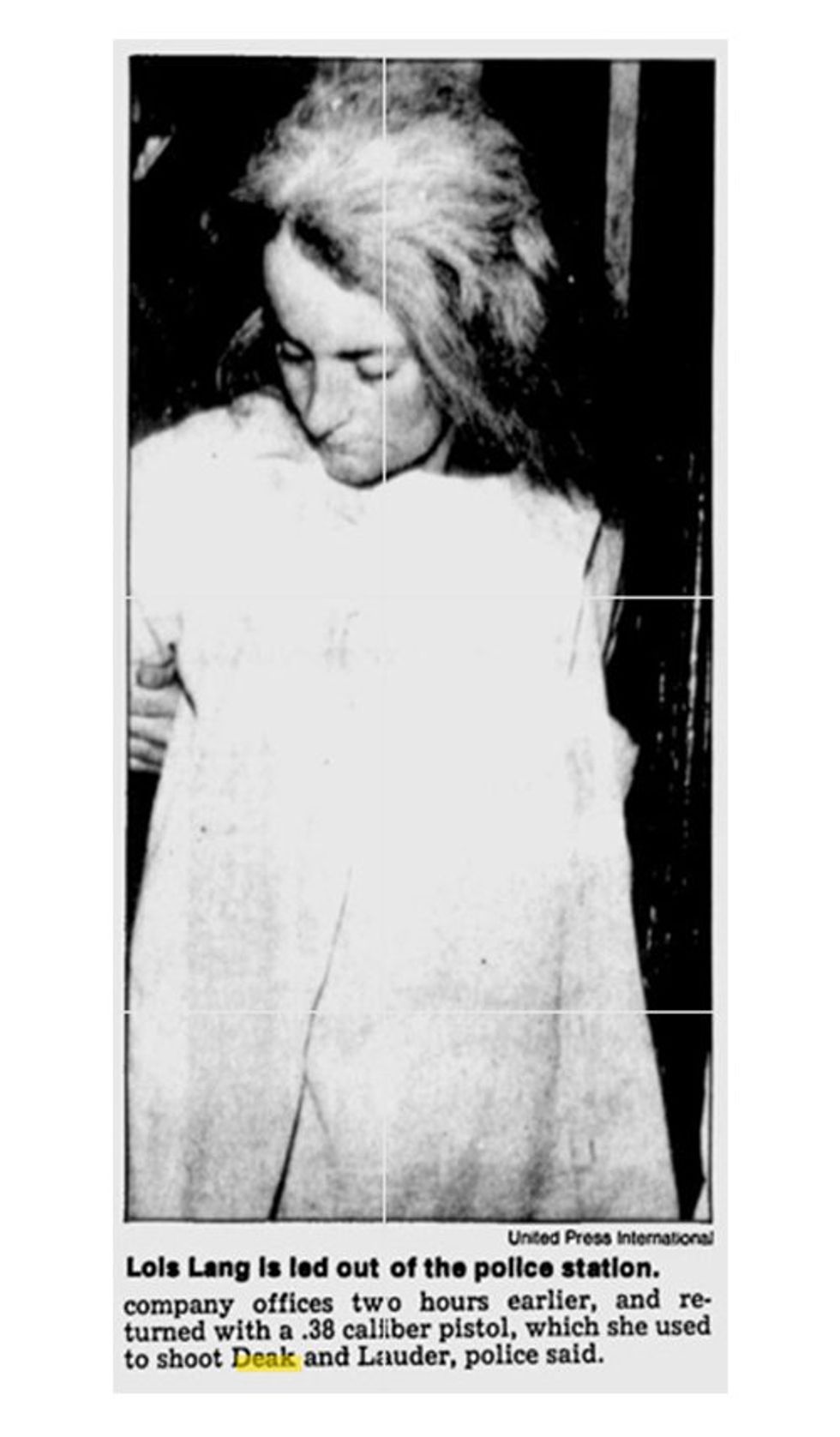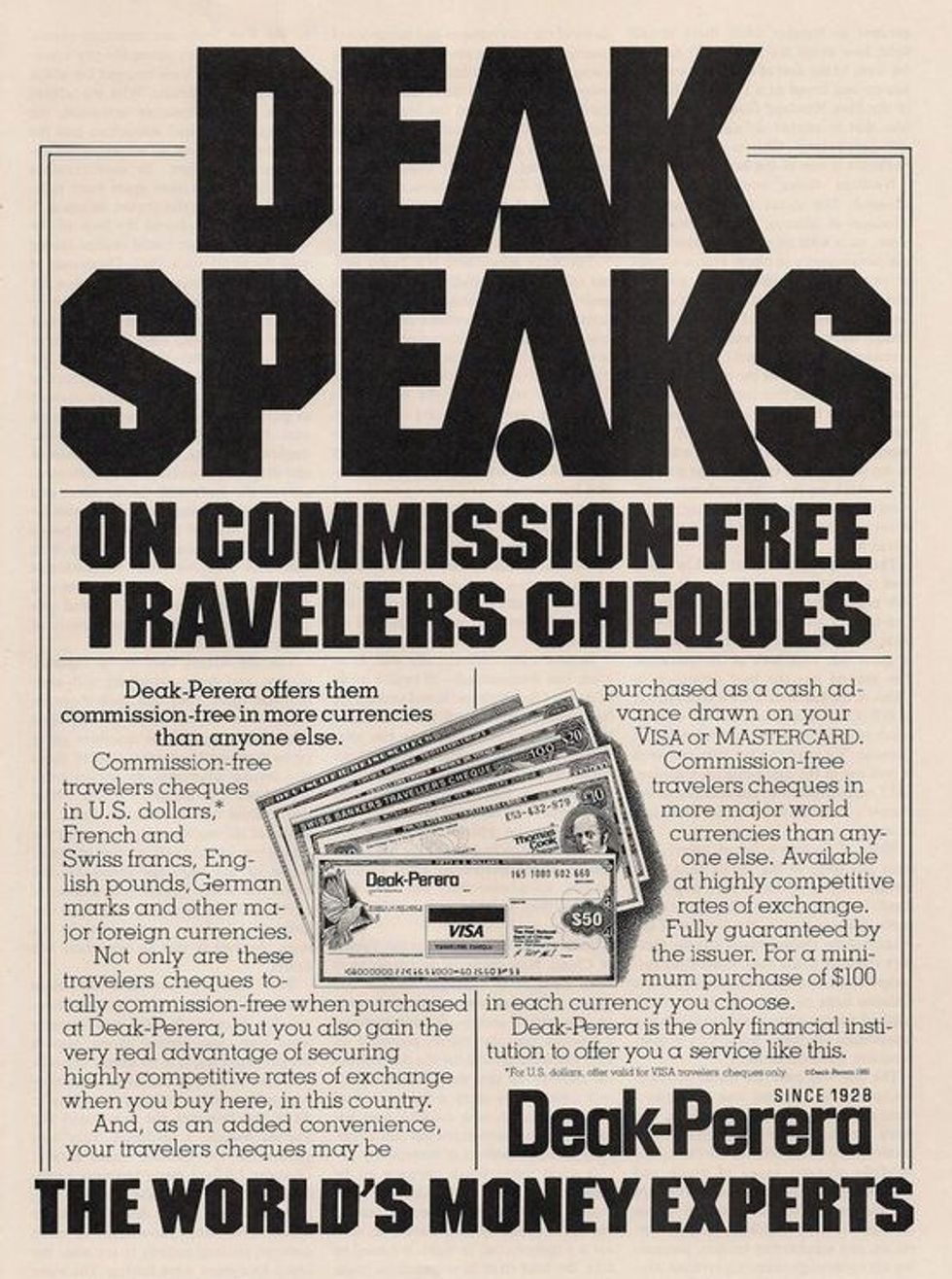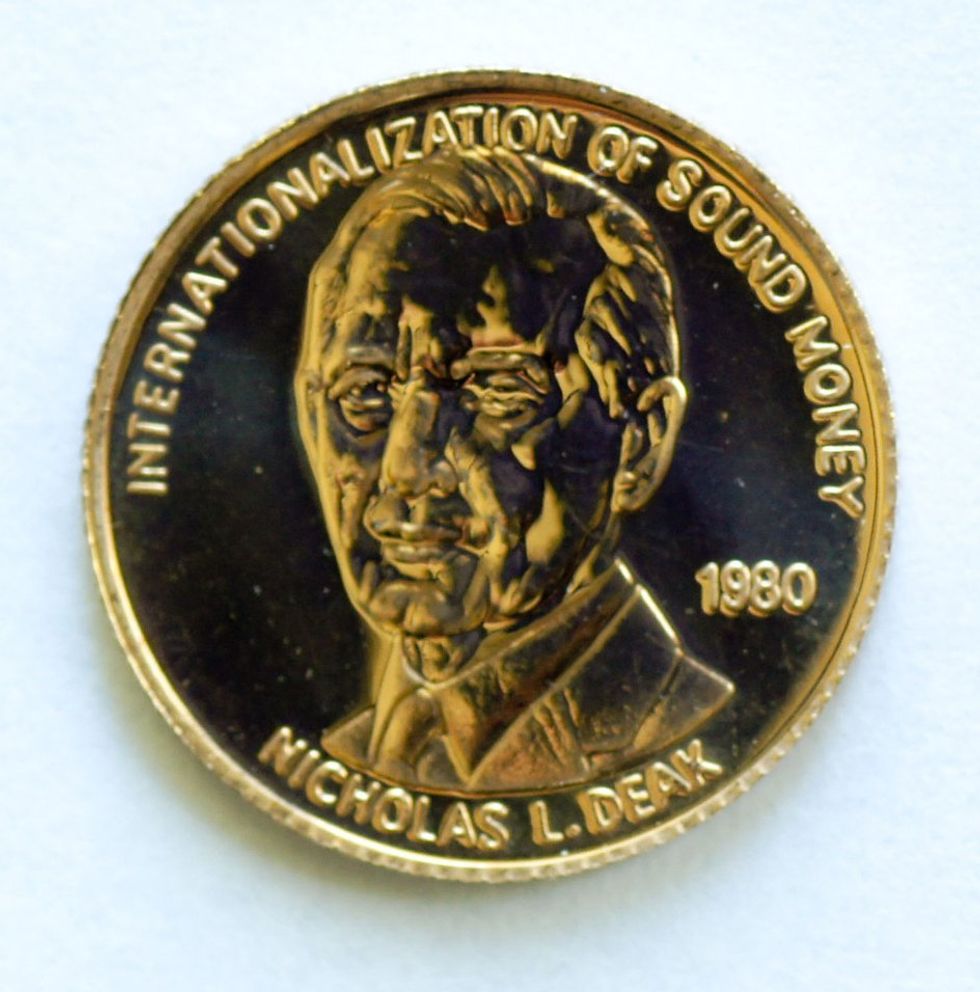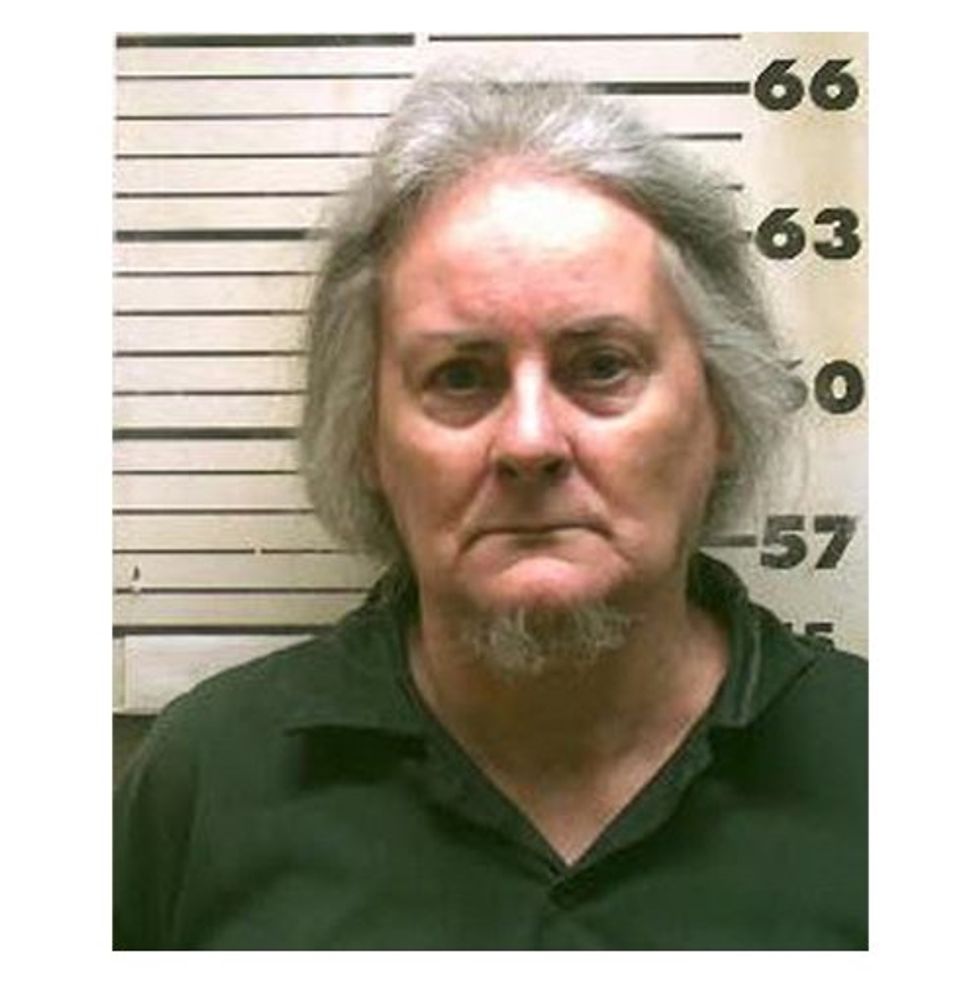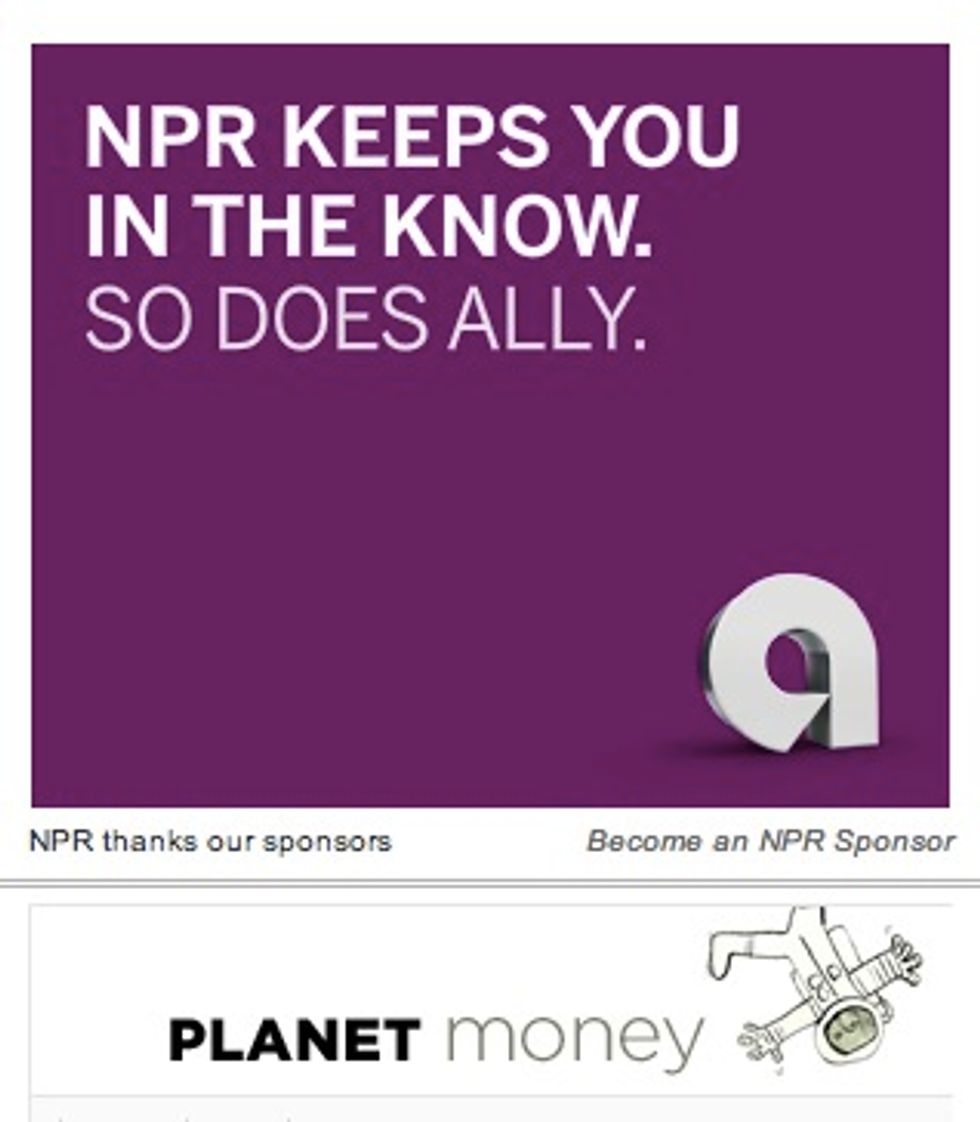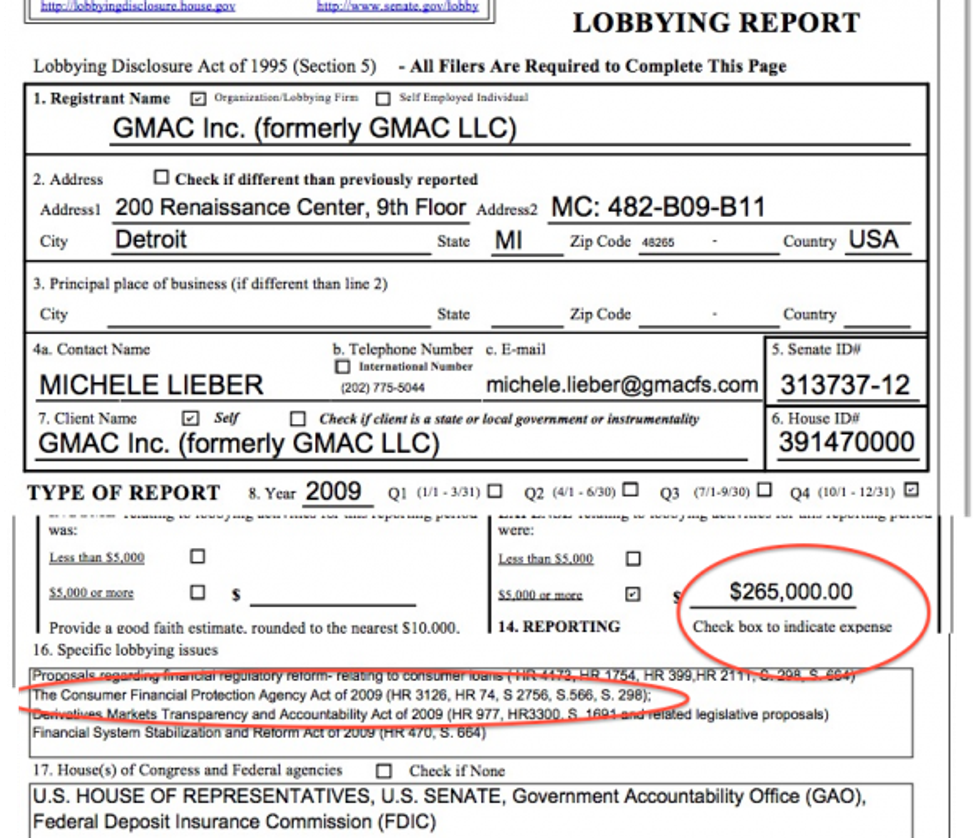The Anonymous Blacklist Promoted by the Washington Post Has Apparent Ties to Ukrainian Fascism and CIA Spying
Last month, the Washington Post gave a glowing front-page boost to an anonymous online blacklist of hundreds of American websites, from marginal conspiracy sites to flagship libertarian and progressive publications. As Max Blumenthal reported for AlterNet, the anonymous website argued that all of them should be investigated by the federal government and potentially prosecuted under the Espionage Act as Russian spies, for wittingly or unwittingly spreading Russian propaganda.
My own satirical newspaper was raided and closed down by the Kremlin in 2008, on charges of “extremism”—akin to terrorism—which I took seriously enough to leave for home for good. What the Washington Post did in boosting an anonymous blacklist of American journalists accused of criminal treason is one of the sleaziest, and most disturbing (in a very familiar Kremlin way) things I’ve seen in this country since I fled for home. The WaPo is essentially an arm of the American deep state; its owner, Jeff Bezos, is one of the three richest Americans, worth $67 billion, and his cash cow, Amazon, is a major contractor with the Central Intelligence Agency. In other words, this is as close to an official US government blacklist of journalists as we’ve seen—a dark ominous warning before they take the next steps.
It’s now been a few days, and the shock and disgust is turning to questions about how to fight back—and who we should be fighting against. Who were the Washington Post’s sources for their journalism blacklist?
Smearing a progressive journalism icon
The WaPo smear was authored by tech reporter Craig Timberg, a former national security editor who displayed embarrassing deference to the head of the world’s largest private surveillance operation, billionaire Eric Schmidt—in contrast to his treatment of his journalism colleagues. There’s little in Timberg’s history to suggest he’d lead one of the ugliest public smears of his colleagues in decades. Timberg’s father, a successful mainstream journalist who recently died, wrote hagiographies on his Naval Academy comrades including John McCain, the Senate’s leading Russophobic hawk, and three Iran-Contra conspirators—Oliver North, John Poindexter, and Robert McFarlane, whose crimes Timberg blames on their love of country and sacrifices in Vietnam.
WaPo’s key source was an anonymous online group calling itself PropOrNot (i.e., “Propaganda Or Not”). It was here that the blacklist of American journalists allegedly working with the Kremlin was posted. The Washington Post cited PropOrNot as a credible source, and granted them the right to anonymously accuse major American news outlets of treason, recommending that the government investigate and prosecute them under the Espionage Act for spreading Russian propaganda.
Featured alongside those anonymously accused of treason by PropOrNot, among a long list of marginal conspiracy sites and major news hubs, is Truthdig. This news and opinion site was co-founded by Zuade Kaufman and the veteran journalist Robert Scheer, who is a professor of USC’s Annenberg School for Communication and Journalism and former columnist for the LA Times. It would not be the first time Scheer has come under attack from dark forces. In the mid-late 1960s, Scheer made his fame as editor and reporter for Ramparts, the fearless investigative magazine that changed American journalism. One of the biggest bombshell stories that Scheer’s magazine exposed was the CIA’s covert funding of the National Student Association, then America’s largest college student organization, which had chapters on 400 campuses and a major presence internationally.
The CIA was not pleased with Scheer’s magazine’s work, and shortly afterwards launched a top-secret and illegal domestic spying campaign against Scheer and Ramparts, believing that they must be a Russian Communist front. A secret team of CIA operatives—kept secret even from the rest of Langley, the operation was so blatantly illegal—spied on Scheer and his Ramparts colleagues, dug through Ramparts’ funders lives and harassed some of them into ditching the magazine, but in all of that they couldn’t find a single piece of evidence linking Scheer’s magazine to Kremlin agents. This secret illegal CIA investigation into Scheer’s magazine expanded its domestic spying project, code-named MH-CHAOS, that grew into a monster targeting hundreds of thousands of Americans, only to be exposed by Seymour Hersh in late 1974, leading to the creation of the Church Committee hearings and calls by Congress for the abolition of the Central Intelligence Agency.
It’s one of the dark ugly ironies that 50 years later, Scheer has been anonymously accused of working for Russian spies, only this time the accusers have the full cooperation of the Washington Post’s front page.
PropOrNot’s Ukrainian fascist salute
Still the question lingers: Who is behind PropOrNot? Who are they? We may have to await the defamation lawsuits that are almost certainly coming from those smeared by the Post and by PropOrNot. Their description sounds like the “About” tab on any number of Washington front groups that journalists and researchers are used to coming across:
“PropOrNot is an independent team of concerned American citizens with a wide range of backgrounds and expertise, including professional experience in computer science, statistics, public policy, and national security affairs.”
The only specific clues given were an admission that at least one of its members with access to its Twitter handle is “Ukrainian-American”. They had given this away in a handful of early Ukrainian-language tweets, parroting Ukrainian ultranationalist slogans, before the group was known.
One PropOrNot tweet, dated November 17, invokes a 1940s Ukrainian fascist salute “Heroiam Slava!!” to cheer a news item on Ukrainian hackers fighting Russians. The phrase means “Glory to the heroes” and it was formally introduced by the fascist Organization of Ukrainian Nationalists (OUN) at their March-April 1941 congress in Nazi occupied Cracow, as they prepared to serve as Nazi auxiliaries in Operation Barbarossa. As historian Grzgorz RossolinÌ�ski-Liebe, author of the definitive biography on Ukraine’s wartime fascist leader and Nazi collaborator Stepan Bandera, explained:
“the OUN-B introduced another Ukrainian fascist salute at the Second Great Congress of the Ukrainian Nationalists in Cracow in March and April 1941. This was the most popular Ukrainian fascist salute and had to be performed according to the instructions of the OUN-B leadership by raising the right arm ‘slightly to the right, slightly above the peak of the head’ while calling ‘Glory to Ukraine!’ (Slava Ukraїni!) and responding ‘Glory to the Heroes!’ (Heroiam Slava!).”
Two months after formalizing this salute, Nazi forces allowed Bandera’s Ukrainian fascists to briefly take control of Lvov, at the time a predominantly Jewish and Polish city—whereupon the Ukrainian “patriots” murdered, tortured and raped thousands of Jews, in one of the most barbaric and bloodiest pogroms ever.
Since the 2014 Maidan Revolution brought Ukrainian neo-fascists back into the highest rungs of power, Ukraine’s Nazi collaborators and wartime fascists have been rehabilitated as heroes, with major highways and roads named after them, and public commemorations. The speaker of Ukraine’s parliament, Andriy Parubiy, founded Ukraine’s neo-Nazi “Social-National Party of Ukraine” and published a white supremacist manifesto, “View From the Right” featuring the parliament speaker in full neo-Nazi uniform in front of fascist flags with the Nazi Wolfsangel symbol. Ukraine’s powerful Interior Minister, Arsen Avakov, sponsors several ultranationalist and neo-Nazi militia groups like the Azov Battalion, and last month he helped appoint another neo-Nazi, Vadym Troyan, as head of Ukraine’s National Police. (Earlier this year, when Troyan was still police chief of the capital Kiev, he was widely accused of having ordered an illegal surveillance operation on investigative journalist Pavel Sheremet just before his assassination by car bomb.)
A Ukrainian intelligence service blacklist as PropOrNot’s model
Since coming to power in the 2014 Maidan Revolution, Ukraine’s US-backed regime has waged an increasingly surreal war on journalists who don’t toe the Ukrainian ultranationalist line, and against treacherous Kremlin propagandists, real and imagined. Two years ago, Ukraine established a “Ministry of Truth”. This year the war has gone from surreal paranoia to an increasingly deadly kind of “terror.”
One of the more frightening policies enacted by the current oligarch-nationalist regime in Kiev is an online blacklist of journalists accused of collaborating with pro-Russian “terrorists.” The website, “Myrotvorets” or “Peacemaker”—was set up by Ukrainian hackers working with state intelligence and police, all of which tend to share the same ultranationalist ideologies as Parubiy and the newly-appointed neo-Nazi chief of the National Police.
Condemned by the Committee to Protect Journalists and numerous news organizations in the West and in Ukraine, the online blacklist includes the names and personal private information on some 4,500 journalists, including several western journalists and Ukrainians working for western media. The website is designed to frighten and muzzle journalists from reporting anything but the pro-nationalist party line, and it has the backing of government officials, spies and police—including the SBU (Ukraine’s successor to the KGB), the powerful Interior Minister Avakov and his notorious far-right deputy, Anton Geraschenko.
Ukraine’s journalist blacklist website—operated by Ukrainian hackers working with state intelligence—led to a rash of death threats against the doxxed journalists, whose email addresses, phone numbers and other private information was posted anonymously to the website. Many of these threats came with the wartime Ukrainian fascist salute: “Slava Ukraini!” [Glory to Ukraine!] So when PropOrNot’s anonymous “researchers” reveal only their Ukrainian(s) identity, it’s hard not to think about the spy-linked hackers who posted the deadly “Myrotvorets” blacklist of “treasonous” journalists.
The DNC’s Ukrainian ultra-nationalist researcher cries treason
Because the PropOrNot blacklist of American journalist “traitors” is anonymous, and the Washington Post front-page article protects their anonymity, we can only speculate on their identity with what little information they’ve given us. And that little bit of information reveals only a Ukrainian ultranationalist thread—the salute, the same obsessively violent paranoia towards Russia, and towards journalists, who in the eyes of Ukrainian nationalists have always been dupes and stooges, if not outright collaborators, of Russian evil.
One of the key media sources who blamed the DNC hacks on Russia, ramping up fears of crypto-Putinist infiltration, is a Ukrainian-American lobbyist working for the DNC. She is Alexandra Chalupa—described as the head of the Democratic National Committee’s opposition research on Russia and on Trump, and founder and president of the Ukrainian lobby group “US United With Ukraine Coalition”, which lobbied hard to pass a 2014 bill increasing loans and military aid to Ukraine, imposing sanctions on Russians, and tightly aligning US and Ukraine geostrategic interests.
In October of this year, Yahoo News named Chalupa one of “16 People Who Shaped the 2016 Election” for her role in pinning the DNC leaks on Russian hackers, and for making the case that the Trump campaign was under Kremlin control. “As a Democratic Party consultant and proud Ukrainian-American, Alexandra Chalupa was outraged last spring when Donald Trump named Paul Manafort as his campaign manager,” the Yahoo profile began. “As she saw it, Manafort was a key figure in advancing Russian President Vladimir Putin’s agenda inside her ancestral homeland — and she was determined to expose it.”
Chalupa worked with veteran reporter Michael Isikoff of Yahoo News to publicize her opposition research on Trump, Russia and Paul Manafort, as well as her many Ukrainian sources. In one leaked DNC email earlier this year, Chalupa boasts to DNC Communications Director Luis Miranda that she brought Isikoff to a US-government sponsored Washington event featuring 68 Ukrainian journalists, where Chalupa was invited “to speak specifically about Paul Manafort.” In turn, Isikoff named her as the key inside source “proving” that the Russians were behind the hacks, and that Trump’s campaign was under the spell of Kremlin spies and sorcerers.
(In 2008, when I broke the story about the Manafort-Kremlin ties in The Nation with Ari Berman, I did not go on to to accuse him or John McCain, whose campaign was being run by Manafort’s partner, of being Manchurian Candidates under the spell of Vladimir Putin. Because they weren’t; instead, they were sleazy, corrupt, hypocritical politicians who followed money and power rather than principle. A media hack feeding frenzy turned Manafort from what he was—a sleazy scumbag—into a fantastical Kremlin mole, forcing Manafort to resign from the Trump campaign, thanks in part to kompromat material leaked by the Ukrainian SBU, successor to the KGB.)
Meanwhile, Chalupa’s Twitter feed went wild accusing Trump of treason—a crime that carries the death penalty. Along with well over 100 tweets hashtagged #TreasonousTrump Chalupa repeatedly asked powerful government officials and bodies like the Department of Justice to investigate Trump for the capital crime of treason. In the weeks since the election, Chalupa has repeatedly accused both the Trump campaign and Russia of rigging the elections, demanding further investigations. According to The Guardian, Chalupa recently sent a report to Congress proving Russian hacked into the vote count, hoping to initiate a Congressional investigation. In an interview with Gothamist, Chalupa described alleged Russian interference in the election result as “an act of war.”
To be clear, I am not arguing that Chalupa is behind PropOrNot. But it is important to provide context to the boasts by PropOrNot about its Ukrainian nationalist links—within the larger context of the Clinton campaign’s anti-Kremlin hysteria, which crossed the line into Cold War xenophobia time and time again, an anti-Russian xenophobia shared by Clinton’s Ukrainian nationalist allies. To me, it looks like a classic case of blowback: A hyper-nationalist group whose extremism happens to be useful to American geopolitical ambitions, and is therefore nurtured to create problems for our competitor. Indeed, the US has cultivated extreme Ukrainian nationalists as proxies for decades, since the Cold War began.
As investigative journalist Russ Bellant documented in his classic exposé, “Old Nazis, New Right,” Ukrainian Nazi collaborators were brought into the United States and weaponized for use against Russia during the Cold War, despite whatever role they may have played in the Holocaust and in the mass slaughter of Ukraine’s ethnic Poles. After spending so many years encouraging extreme Ukrainian nationalism, it’s no surprise that the whole policy is beginning to blow back.
WaPo’s other source: A loony, far-right eugenicist think tank
Besides PropOrNot, the Washington Post’s Craig Timberg relied on only one other source to demonstrate the influence of Russian propaganda: the Foreign Policy Research Institute (FPRI), whose “fellow” Clint Watts is cited by name, along with a report he co-authored, “Trolling for Trump: How Russia is Trying to Destroy Our Democracy.”
Somehow, in the pushback and outrage over the WaPo blacklist story, the FPRI has managed to fly under the radar. So much so that when Fortune’s Matthew Ingram correctly described the FPRI as “proponents of the Cold War” he was compelled to issue a clarification, changing the description to “a conservative think tank known for its hawkish stance on relations between the US and Russia.”
In fact, historically the Foreign Policy Research Institute has been one of the looniest (and spookiest) extreme-right think tanks since the early Cold War days, promoting “winnable” nuclear war, maximum confrontation with Russia, and attacking anti-colonialism as dangerously unworkable. One of the key brains behind the FPRI’s extreme-right Cold War views also happened to be a former Austrian fascist official who, upon emigrating to America, became one of this country’s leading proponents of racial eugenics and white supremacy.
The Foreign Policy Research Institute was founded by Robert Strausz-Hupé and set up on the University of Pennsylvania campus, with backing from the Vick’s chemical company, funder of numerous reactionary rightwing causes since the New Deal began. And, as the New York Times reported, the FPRI also was covertly funded by the CIA, a revelation that would lead to student protests and the FPRI removing itself from Penn’s campus in 1970.
The FPRI’s founder, Strausz-Hupe, emigrated to the US from Austria in the 1920s. In the early Cold War years, he became known as an advocate of aggressive confrontation with the Soviet Union, openly advocating total nuclear war rather than anything like surrender or cohabitation. In a 1961 treatise “A Forward Strategy for America” that Strausz-Hupe co-authored with his frequent FPRI collaborator, the former Austrian fascist official and racial eugenics advocate Stefan Possony, they wrote:
“Even at a moment when the United States faces defeat because, for example, Europe, Asia and Africa have fallen to communist domination, a sudden nuclear attack against the Soviet Union could at least avenge the disaster and deprive the opponent of the ultimate triumph. While such a reversal at the last moment almost certainly would result in severe American casualties, it might still nullify all previous Soviet conquests.”
But it was Russian propaganda that most concerned Strausz-Hupe and his FPRI. In 1959, for example, he published a three-page spread in the New York Times, headlined “Why Russia Is Ahead in Propaganda,” that has odd echoes of last month’s paranoid Washington Post article alleging a vast conspiracy of American journalists secretly poisoning the public’s mind with Russian propaganda. The article argued, as many do today, that America and the West were dangerously behind the Russians in the propaganda arms race—and dangerously disadvantaged by our open and free society, where propaganda is allegedly sniffed out by our ever-vigilant and fearless media.
The only way for America to protect itself from Russian propaganda, he wrote, was to massively increase its propaganda warfare budgets, and close the alleged “propaganda gap”—echoing again the same solutions being peddled today in Washington and London:
“[W]ithin the limitations of our society, we can take steps to expand and improve our existing programs.
“These programs have been far from generous. It has been estimated, for example, that the Communists in one single propaganda offensive—the germ-warfare campaign during the Korean conflict—spent nearly as much as the entire annual allocation to the United States Information Agency. We should increase the austere budget of the U.S.I.A. We should give our information specialists a greater voice in policy-making councils. We should attempt to coordinate more fully and effectively the propaganda programs of the Western alliance.”
A few years later, the FPRI’s Strausz-Hupe published a deranged attack in the New York Times against Stanley Kubrick’s film Dr. Strangelove, calling it “the most vicious attack to date launched by way of our mass media against the American military profession”. The FPRI’s founding director went further, accusing Kubrick of being, if not a conscious Russian agent of propaganda, then a Soviet dupe undermining American democracy and stability—the same sort of paranoid accusations that FPRI is leveling again today. As Strausz-Hupe wrote:
“Anyone who cares to scan the Soviet press and the Communist press in other lands will note that it is one of the principal Communist objectives to drive a wedge between the American people and their military leaders. Mr. Kubrick’s creation certainly serves this purpose.”
Reading that then, knowing how the Soviet Union eventually collapsed on itself without firing a shot—and seeing the same paranoid, sleazy lies being peddled again today, one is dumbstruck by just how stagnant our intellectual culture is. We’ve never thawed ourselves out from our Cold War pathologies; we’re still trapped in the same structures that nurture these pathologies. Too many careers and salaries depend on it...
But Strausz-Hupe was the voice of reason compared to his chief collaborator and co-author at the Foreign Policy Research Institute, Stefan Possony. He too was an Austrian emigre, although Possony didn’t leave his homeland until 1938. Before then he served in the Austrofascist governments of both Dollfuss and Schuschnigg, but left after the Nazi Anschluss deposed the native fascists and installed Hitler’s puppets in their place.
Possony was a director and fellow at the Foreign Policy Research Institute, and according to historian Robert Vitalis’ recent book “White World Power” [Cornell University Press], Possony co-authored nearly all of the FPRI’s policy research material until he moved to Stanford’s Hoover Institute in 1961, where he helped align the two institutions. Possony continued publishing in the FPRI’s journal Orbis throughout the 1960s and beyond. He was also throughout this time one of the most prolific contributors to Mankind Quarterly, the leading race eugenics journal in the days before The Bell Curve—and co-author race eugenics books with white supremacist Nathaniel Weyl.
So even as he was publishing aggressive Cold War propaganda for the Foreign Policy Research Institute, Possony wrote elsewhere that the “average African Negro functions as does the European after a leucotomy [prefrontal lobotomy] operation” In other articles, Possony described the people of “the Middle East, Latin America and Southeast Asia” as “genetically unpromising“ because they “lack the innate brain power required for mastery and operation of the tools of modern civilization[.] . . .” For this reason he and Strausz-Hupe opposed the early Cold War policy of de-colonization: “The accretion of lethal power in the hands of nation states dominated by populations incapable of rational thought could be a harbinger of total disaster.” Instead, they argued that white colonialism benefited the natives and raised them up; western critics of colonialism, they argued, were merely “fashionable” dupes who would be responsible for a “genocide” of local whites.
As late as a 1974 article in Mankind Quarterly, Possony was defending race eugenics loon William Shockley’s theories on the inferiority of dark skinned races, which he argued could prove that spending money on welfare was in fact a “waste” since there was no way to improve genetically inferior races. Around the same time, Possony emerged as the earliest and most effective advocate of the “Star Wars” anti-ballistic missile system adopted by President Reagan. The way Possony saw it, the Star Wars weapon was entirely offensive, and would give the United States sufficient first strike capability to win a nuclear war with Russia.
It was this history, and a 1967 New York Times exposé on how the Foreign Policy Research Institute had been covertly funded by the CIA, that led US Senator Fulbright in 1969 to reject Nixon’s nomination of Strausz-Hupe as ambassador to Morocco. Fulbright denounced Strausz-Hupe as a Cold War extremist and a threat to world peace: ''the very epitome of a hard-line, no compromise.” However, he gave in a couple of years later when Nixon named him to the post of ambassador in Sri Lanka.
Today, the Foreign Policy Research Institute proudly honors its founder Strausz-Hupe, and honors his legacy with blacklists of allegedly treasonous journalists and allegedly all-powerful Russian propaganda threatening our freedoms.
This is the world the Washington Post is bringing back to its front pages. And the timing is incredible—as if Bezos’ rag has taken upon itself to soften up the American media before Trump moves in for the kill. And it’s all being done in the name of fighting “fake news” ...and fascism.

